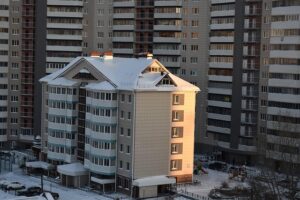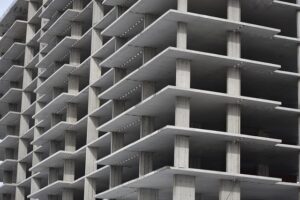Legal Insights into Owning an Executive Condo in Singapore: ECs Costs, Eligibility, and Rights
When considering resale or subletting an Executive Condominium (EC) in Singapore, it's essential to be aware of the specific legal constraints and regulations that apply. ECs are designed for first-time Singaporean homeowners on a 99-year leasehold basis…….

When considering resale or subletting an Executive Condominium (EC) in Singapore, it's essential to be aware of the specific legal constraints and regulations that apply. ECs are designed for first-time Singaporean homeowners on a 99-year leasehold basis. After fulfilling the minimum occupation period (MOP) of five years, owners can sell or sublet their units, with strict guidelines regarding disclosure of lease details and outstanding CPF loans to buyers. Sublessees must meet income and occupancy conditions post-MOP. The average price of ECs in Singapore has been on the rise, indicating a robust market and highlighting these properties as attractive investment options. It's crucial for buyers to understand not only the current average price but also the governance model, which involves the establishment of a Maintenance and Management Corporation Strata Title (MCST) for common property maintenance. The Housing & Development Board (HDB) oversees EC-specific regulations, influencing market dynamics and potentially affecting resale values and investment yields. As Singapore's property market evolves with demographic shifts and policy changes, staying informed on these developments is key to making educated decisions about ECs as a home or investment in Singapore.
Exploring the intricacies of Executive Condominiums (ECs) in Singapore necessitates a comprehensive understanding of their unique legal framework and market dynamics. This article serves as a definitive guide for prospective buyers, current owners, and investors interested in the EC landscape. It dissects the eligibility criteria, average price trends, and financing options, all within the context of Singapore’s stringent property laws. Delve into the legal considerations for resale and subletting, the rights and obligations of owners, and the nuances of maintenance and management under strata titling. As the market evolves, this insightful piece also anticipates the future implications of law on ECs, ensuring readers are well-equipped to navigate this vibrant segment of Singapore’s property market.
- Understanding Executive Condos (ECs) in Singapore: A Primer
- Eligibility Criteria for Purchasing an Executive Condo in Singapore
- The Legal Framework Governing Executive Condos in Singapore
- Average Price Trends of ECs in Singapore and Market Analysis
- Financing Your Executive Condo: Legal Aspects and Mortgage Options
- The Resale and Subletting Process for Executive Condos: Legal Considerations
- Rights and Obligations of Executive Condo Owners under Singapore Law
- Maintenance, Management, and Strata Titles: A Legal Perspective on EC Living
- The Future of Executive Condos in Singapore: Legal Implications and Predicted Market Dynamics
Understanding Executive Condos (ECs) in Singapore: A Primer

Executive Condos (ECs) in Singapore present a unique housing option for couples and families, particularly those with Singapore Citizen (SC) members. These hybrid properties combine the benefits of a private condominium with the affordability that public housing offers, making them an attractive choice for many. Prospective buyers interested in the average price of ECs in Singapore should note that prices vary based on factors such as location, development size, and the maturity of the project. As of recent years, prices have seen a steady increase, reflecting both market demand and the quality of living these properties offer.
Understanding the nuances of EC ownership is crucial for potential buyers. Unlike private condos, ECs are sold on 99-year leases and come with certain eligibility criteria that applicants must meet. The Singaporean government has specific stipulations regarding ECs, including the requirement that at least one unit owner must be a Singapore Citizen at the time of application for a new flat. Additionally, applicants’ total household income must not exceed certain limits. For those considering an investment in an EC, it is important to stay informed about the latest updates from the Housing & Development Board (HDB) and the Urban Redevelopment Authority (URA), as regulations can evolve over time, potentially impacting eligibility and pricing. Keeping abreast of these developments will help buyers navigate the EC market with confidence and make informed decisions regarding the average price of ECs in Singapore.
Eligibility Criteria for Purchasing an Executive Condo in Singapore

Prospective buyers interested in purchasing an Executive Condominium (EC) in Singapore must first understand the eligibility criteria set forth by the government to ensure they are suitable for EC ownership at the point of purchase. As of the current regulations, applicants must be at least 21 years old, and either a Singapore citizen or permanent resident. Additionally, they should not own or have an interest in another flat, which includes existing HDB flats, DBSS (Design, Build and Sell Scheme) flats, or any other forms of private property within Singapore. The eligibility criteria also stipulate that applicants must not have exceeded the maximum loan-to-value (LTV) limit for their housing loan, which varies based on the type of property and the loan amount.
Moreover, the definition of a family nucleus applies, meaning only members who are connected by blood or marriage can jointly apply for an EC. This includes siblings below 65 years old, and in the event that one is a single person, he or she must not own a residential property, either wholly or partly. It’s also worth noting the Occupier Eligibility Criteria, where at least one applicant must intend to occupy the EC as his/her sole or principal home for a certain period from the date of key collection, typically five years, before it can be leased out or sold to others who meet the criteria. The average price of ECs in Singapore has been on an upward trend, reflecting the desirability and demand for these homes that offer a balance between public and private housing benefits. Potential buyers should consider the latest pricing trends and market conditions before making their purchase, as this will influence their investment and homeownership journey.
The Legal Framework Governing Executive Condos in Singapore

In Singapore, Executive Condominiums (ECs) serve as a housing option for both singles and families who do not immediately qualify for a public housing flat but are unable to afford private housing. The legal framework regulating ECs is governed by several statutes, including the Maintenance and Management Fund Act, Building Maintenance and Strata Management Act, and the Housing and Development Board Act. These laws dictate the management, maintenance, and stratified management of ECs, ensuring that residents’ rights are protected and their living standards are upheld. Prospective buyers should be aware of the eligibility criteria, which include the income ceiling set by the CPF Board, as well as the resale or purchase lease criteria that dictate when an EC becomes a private condominium after meeting certain conditions, typically at the end of its 10-year minus date. It’s also pivotal to consider the average price of EC units in Singapore, which can provide insight into the investment potential and market trends within this unique segment of the real estate market. As of recent years, prices have seen fluctuations based on market demand and government policies, making it a dynamic yet regulated space for property investment and ownership. Understanding these legal considerations is crucial for anyone looking to purchase an EC, as it influences both the immediate cost and future resale value.
Average Price Trends of ECs in Singapore and Market Analysis

The average price trends of Executive Condos (ECs) in Singapore have displayed a dynamic trajectory over recent years, reflecting the nuanced interplay between housing demand, government policies, and economic factors. Prospective buyers interested in the average price of ECs in Singapore should note that these units are a hybrid of HDB flats and private condominiums, designed for couples with at least one child or siblings who are first-time flat applicants. Market analysis indicates that EC prices have been on an upward trend, driven by a combination of factors including limited supply, the maturing age profile of first-time home buyers, and the desirability of living in larger, more amenity-rich residential environments. Notably, the price trends for ECs often mirror those of the public and private housing markets, but with different sensitivities due to their unique nature as a housing type. Investors and potential residents alike should keep a close eye on these trends, as they can signal changes in the broader property market landscape.
Financing Your Executive Condo: Legal Aspects and Mortgage Options

When considering the purchase of an Executive Condominium (EC) in Singapore, understanding the financing options and legal aspects related to mortgage arrangements is paramount. Prospective buyers must be aware that ECs are a hybrid of public and private housing, with eligibility criteria that differ from both HDB flats and private condominiums. The Average Price Of Ec In Singapore has been on an upward trend, reflecting the high demand for these middle-market public housing units. This trend underscores the importance of securing financing that aligns with one’s financial capacity and long-term financial planning.
In terms of mortgage options, buyers have a range of choices, including bank loans, HDB loans, or a combination of both under the Fixed Rate Scheme (FRS) or Flexi-Loan Scheme (FLS). Each option comes with its own set of interest rates, loan-to-value (LTV) ratios, and eligibility conditions. Legal considerations involve understanding the terms and conditions associated with these loans, including the implications of early repayment should the need arise. It is crucial for buyers to engage with a panel of legal and financial advisors who can guide them through the complexities of EC financing, ensuring compliance with CPF withdrawal limits and other regulatory requirements. Prospective buyers must carefully assess their financial situation, considering both the Average Price Of Ec In Singapore and the diverse mortgage options available, to make an informed decision that aligns with their financial goals and the stipulated regulations governing Executive Condos in Singapore.
The Resale and Subletting Process for Executive Condos: Legal Considerations

When contemplating the resale or subletting of an Executive Condo (EC) in Singapore, it is imperative to understand the legal framework governing such transactions. Prospective sellers and tenants must be aware that ECs are designed primarily for Singaporeans who do not own a flat yet. As such, only Singapore citizens can purchase an EC on a 99-year leasehold basis. Upon fulfilling the minimum occupation period (MOP) of five years, however, the unit can be sold to either Singaporeans or permanent residents (PRs). It is crucial for sellers to provide potential buyers with accurate information regarding the remaining lease and any existing CPF (Central Provident Fund) loan on the property.
Subletting an EC presents its own set of legal considerations. While PRs and foreigners are allowed to sublet their EC units after the MOP has been satisfied, they must ensure compliance with the regulations set forth by the CPF Board and the Housing & Development Board (HDB). Sublessees must also adhere to the stipulated income ceilings and occupation rules. It is advisable for those looking to sublet their ECs to seek legal advice to navigate these conditions effectively. Potential buyers and lessees should consider the average price of ECs in Singapore as a benchmark, which can influence their investment decisions and rental pricing strategies. Prices can vary significantly based on location, unit type, and the overall market demand, thus, due diligence is essential for making informed choices within the EC resale and subletting market.
Rights and Obligations of Executive Condo Owners under Singapore Law

Under Singaporean law, Executive Condominium (EC) owners are subject to a unique set of rights and obligations that differ from both public and private condominium owners. These legal distinctions are crucial for understanding the scope of ownership within EC developments. Upon acquiring an EC unit, owners have the right to occupy and use the property in accordance with the terms of their lease or title. They also have the responsibility to abide by the Condominium Act and associated regulations, which govern the management and administration of condominiums in Singapore.
Furthermore, EC owners are required to comply with specific provisions that include a minimum occupation period (MOP) of five years before they can sell the unit to Singaporeans or qualify for privatization. This stipulation is designed to balance the needs of providing affordable housing while maintaining the integrity of the public housing system. Additionally, EC owners must ensure that their unit is not subletted to non-Singaporean citizens throughout the MOP, adhering to the Housing and Development Board (HDB) rules and regulations. The average price of EC units in Singapore has been on an upward trajectory, reflecting the market’s dynamics and the desirability of these properties. Prospective buyers should consider this trend when evaluating their investment potential and long-term planning within the framework of Singapore’s property market.
Maintenance, Management, and Strata Titles: A Legal Perspective on EC Living

When exploring the lifestyle offered by an Executive Condominium (EC) in Singapore, it’s crucial to understand the legal framework that governs their maintenance, management, and stratified titling. These aspects are pivotal in ensuring the longevity and desirability of EC living, particularly as the average price of EC units remains a significant factor for potential buyers. The Singaporean government outlines specific regulations for the management of ECs, which include the appointment of a private maintenance and management corporation (MCST) once the development is privatized. This corporation plays a vital role in overseeing the upkeep of common areas and facilities, enforcing by-laws, and ensuring compliance with statutory requirements, thereby safeguarding the interests of the residents.
Furthermore, the stratified titling structure under the Strata Titles Boards Act allows individual unit owners to own their units while collectively sharing ownership of common property. This legal arrangement is fundamental in defining the rights and responsibilities of EC residents regarding maintenance fees, decision-making on major repairs and improvements, and the overall management of the development. Prospective buyers considering an EC must factor in not only the average price but also the governance and cost implications associated with this shared ownership model. As such, understanding the legal nuances surrounding EC living is essential for anyone looking to invest or reside in these properties, ensuring a harmonious community and preserving the value of their homes over time.
The Future of Executive Condos in Singapore: Legal Implications and Predicted Market Dynamics

The legal landscape governing Executive Condos (ECs) in Singapore is poised to shape their future significantly. The Housing & Development Board (HDB) sets stringent guidelines for ECs, which are hybrid housing options designed for couples where at least one of the individuals is a Singapore citizen. These units offer a stepping stone for upgrading from public to private housing, with unique legal considerations such as minimum occupation period requirements and eligibility criteria that must be adhered to by potential buyers. As these regulations evolve, they will influence market dynamics and the average price of ECs in Singapore. Prospective investors and residents should keep an eye on policy adjustments that could affect resale values and investment returns.
Looking ahead, the legal implications for ECs are likely to impact their role in the property market. With a growing population and limited land space, the government’s stance on housing developments will play a pivotal role. The average price of ECs has historically been sensitive to changes in policy and availability. As new projects come to market, the balance between supply and demand will continue to drive pricing trends. Factors such as interest rates, economic conditions, and demographic shifts will also influence the future of ECs. Investors and buyers must stay informed about legal changes that could alter the investment appeal and affordability of these properties, ensuring they make decisions with a comprehensive understanding of the potential market dynamics.
When considering the acquisition or resale of an Executive Condominium (EC) in Singapore, it is imperative for prospective buyers and owners to have a comprehensive understanding of the legal landscape that governs these properties. This article has demystified the unique nature of ECs, outlining eligibility criteria, the legal framework, average price trends, financing options, and the resale and subletting process, all within the context of Singapore’s dynamic property market. It is clear that ownership rights and obligations, as well as maintenance and strata titling, are critical factors that influence EC living. As the market evolves, understanding these legal aspects becomes increasingly important for making informed decisions. Prospective buyers should take note of the average price of ECs in Singapore to make prudent financial commitments. By staying abreast of legal developments and market dynamics, investors and residents alike can navigate the EC landscape with confidence, ensuring a sound investment or living arrangement in this vibrant island city-state.







